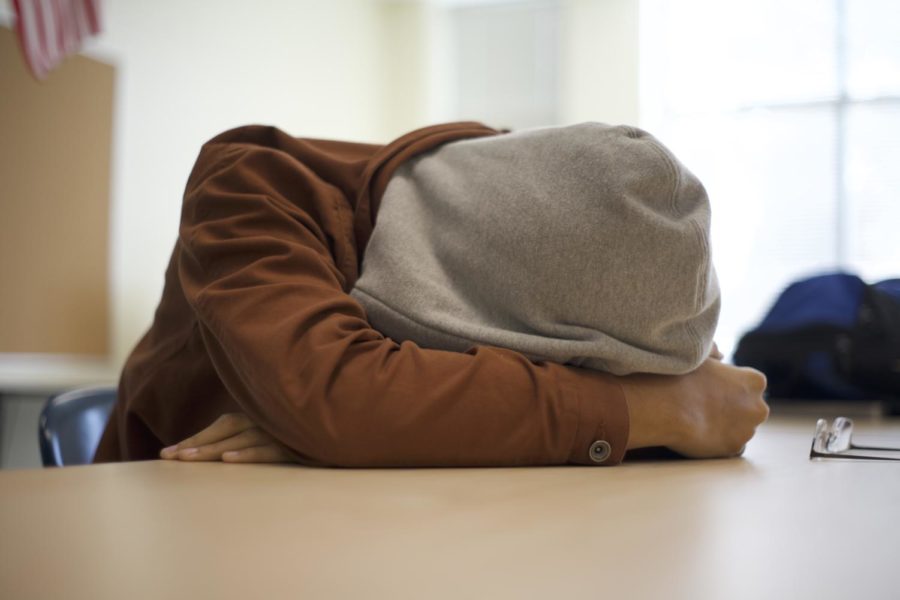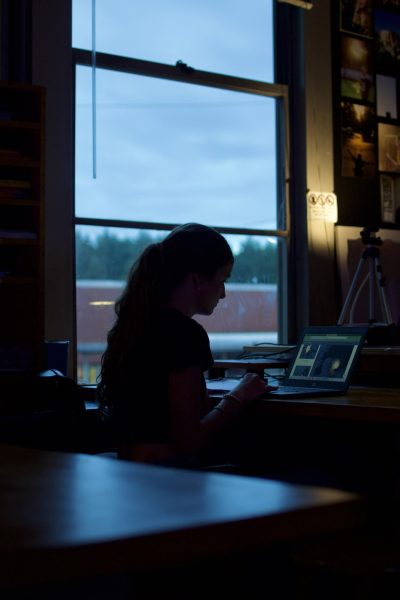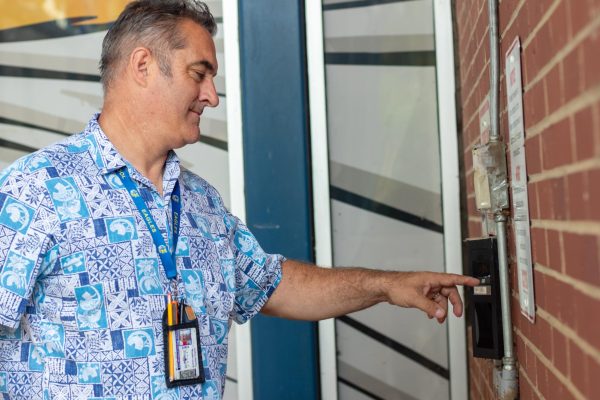The Young and the Restless: Sleep deprived teenagers
Teenagers need at least about eight hours of sleep each night to function best. Most teens aren’t getting enough rest.
Photo by Eli Hausman
Sleep deprived students put their heads down during classes.
I wake up every morning to the sound of a loud and seemingly ever-present ringing alarm. I pick up my phone, which reads: 5:00. I put it on snooze and tell myself that I have eight more minutes to get all of the sleep that I need to power me through the rest of the day. But it isn’t always just eight more minutes, it’s usually about thirty more minutes. After sleeping in more, I somehow get out of my warm, comforting bed. I say to myself: Anaya, you have a test in math, a quiz in biology and a Senior Board meeting before school. You need to get up and get ready for the long day ahead.
Sleep deprivation is a prevalent issue that plagues all high schoolers alike, myself included. It can be caused and influenced by many factors including stress, poor sleeping habits and school, job or family responsibilities.
According to the Centers for Disease Control and Prevention (CDC), teenagers need at least about eight hours of sleep each night to function best. Most teens aren’t getting enough rest. According to CDC analyzed studies from 2015, less than thirty percent of high school students get at least eight hours of sleep on school nights.
Sleep deprivation can have many dire effects. It is known to cause inability and difficulty to concentrate, poor performance in school, poor decision-making skills, anxiety, thoughts of suicide, depression and even suicide attempts. In addition, it is known to contribute to acne and other skin problems, lead to aggressive or inappropriate behavior, bad eating habits and drowsy-driving incidents.
Sleep deprivation can even be deadly for some people, according to research from the American Automobile Association (AAA) Foundation for Traffic Safety, drivers who get one to two hours less than the recommended amount of sleep in a 24-hour period almost doubles their risk of being involved in a car crash.
Per National Highway Traffic Safety Administration statistics, every year about 100,000 police-reported crashes involve drowsy driving. These crashes result in more than 1,500 fatalities and 71,000 injuries.
When teenagers drive to and from school or are bussed, getting an adequate amount of sleep when school starts promptly at 7:25 A.M. is sometimes a challenge.
Within the past couple of decades, Zoe Lofgren, the current representative for California’s 19th congressional district, has sponsored the ZZZ’s to A’s Act, there has been many versions of the act, including but not limited to, House Resolution 2245 and House Resolution 5678. ZZZ’s to A’s is directed at the Department of Education to conduct a study that examines the relationship between school start times and adolescent health, well-being and performance, evaluates factors that contribute to or affect school start times and other. Though introduced to the United States Congress several times, they have yet to be enacted.
Recognizing that high school students suffer from not getting enough sleep is the first solution in solving this widespread issue.
Pushing the school start time just a bit later for high school students would give teenagers more time to rest, therefore reducing the risk of auto accidents and emotional distress, as well as helping students to excel academically.
Your donation will support the student journalists of East Mecklenburg High School. Your contribution will allow us to purchase equipment and cover our annual website hosting costs.






